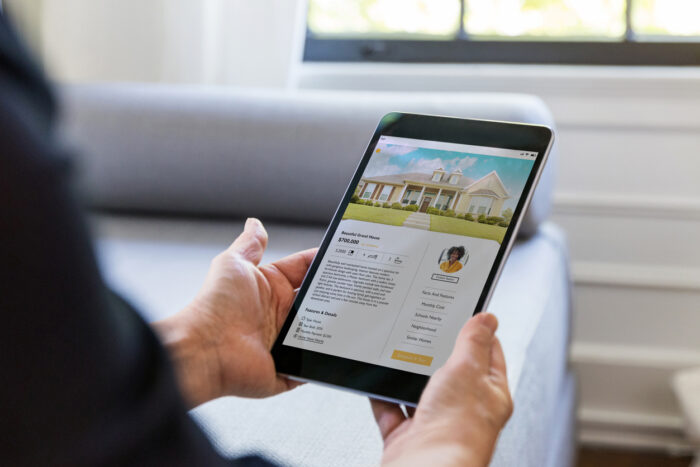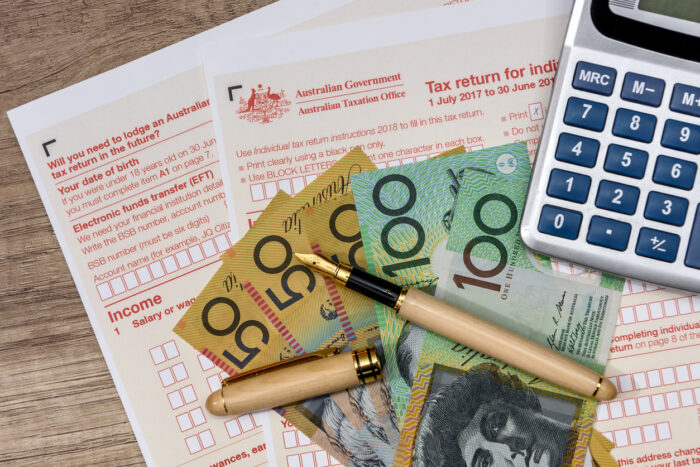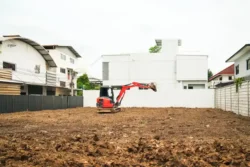Is it worth buying property with super?
Published
September 17, 2024
Published
September 17, 2024

Buying property with super can come with tax effective and asset protective benefits. But the strategy also comes with a price tag and a tonne more complexities than simply buying real estate in your own name.
When someone suggests buying property in super, they’re likely referring to using a self-managed super fund to purchase real estate. Those with their retirement savings in a retail fund, like BT or Hostplus, are restricted in the way they can use their super. But for SMSF members, they can often take advantage of excellent tax and asset protection benefits through their unique super arrangement.
What is a self-managed super fund?
An SMSF is a super fund that is privately owned and managed, rather than a retail fund which is managed by the fund provider. A self-managed super fund puts the decisions in your hands: where to invest, what to invest in and when to alter your portfolio to suit your investment strategy and financial goals.
There are many rules that must be followed to the letter, and an SMSF is typically far more costly than a retail fund. But for many (including those who buy property using super), the financial benefits can often outweigh these complexities and costs.
Benefits of buying property with super
Improved tax rate
SMSF property investors only pay 15 per cent income tax on the net rental income from the super’s property. This might be considerably less than your marginal tax rate and provide a solid financial gain if you have little debt or tax deductible expenses against the premises.
And upon the sale of the property—if held for at least 12 months—the capital gains tax discount is 33.3%. Any capital gains from the property sale will thereafter be taxed at a rate of only 10 per cent. This can even drop to nil when in the pension phase.
Of course, much like an investment property in your sole name, the interest on the property loan is tax deductible.
Asset protection and limited recourse
Buying property through an SMSF can give you access to Limited Recourse Borrowing Arrangements (LRBAs), which protects the other assets in your super fund if the third party lender ever claims recourse over your borrowings. In other words, if your SMSF is unable to repay the borrowings on the property, the lender of an LRBA is typically unable to touch the other properties or assets in your super to recover the debt.
Control over your investment

Retail funds will invest your retirement savings into a range of investments, such as real estate, stocks and bonds. You’ve no control over these investments, and even if you dislike the investment strategy, you’ll have to pay a premium for the privilege of the fund manager’s decisions.
Buying a property in super, on the other hand, puts the control back in your hands. If you’re a confident real estate investor, you might leverage any returns from your property investment to bolster your retirement.
Access the First Home Super Saver (FHSS) scheme
Under the government’s FHSS scheme, you can withdraw up to $50,000 of voluntary super contributions to go towards your first home. These contributions are taxed at a rate of 15 per cent, so typically better than any marginal tax rate.
Downsides of buying property with super
Equity is locked away until after the sale
You can’t use the growth in equity to increase your borrowings—only the equity as of the purchase price or initial valuation. Before using the capital appreciation to your advantage, you’d need to sell the property. Now, this is a big one to consider, given cross-collateralisation is a popular strategy for investors looking to enhance their portfolio and their passive income.
Must be an established property
If you plan to build a brand new property to live in, you might reconsider buying property in your super. The SMSF laws stipulate that you can’t change the structure of the property you’re purchasing, such as subdividing or developing—only minor renovations and improvements.
Costly to set up
Setting up and managing an SMSF often comes with a price tag. Not to mention the cost of arranging the corresponding tax structure for the purchase of the property (given it won’t be owned in your personal name).
You’ll want to ensure the tax benefits and cost savings outweigh the set up fees and ongoing costs to buy property in your super.
Tax losses can’t be used against personal income
Think your SMSF property will be negatively geared? You won’t be able to use that negative gearing against your personal taxable income. Same goes for capital losses upon the sale of the property.
Want to calculate negative gearing? Use our free Negative Gearing Calculator.
How much deposit do I need to buy a property with super?

Banks and non-bank lenders will typically look for a 20 per cent deposit on a residential property and a 35 per cent deposit on a commercial property. This is effectively no different to a personal home loan or investment property loan.
Some lenders do offer higher than the standard 80 per cent lend against the property, with some going up to 90 per cent loan-to-value ratios. Your fund is likely required to pay Lenders’ Mortgage Insurance (LMI) for an LVR this high.
Is purchasing property in super right for you?
Long-term retirement planning is crucial if you’re hoping to live out your twilights in comfort. And for many, including our own investors, an SMSF has gone a long way to deliver that. But don’t take their word for it; discuss with your financial planner or accountant whether buying property in super is a good decision for you.
Want more investment insights like these? Subscribe to our newsletter and we’ll deliver four of our most popular posts each month straight to your inbox. Our experts cover the property market, the economy and the hottest tips on navigating both.







